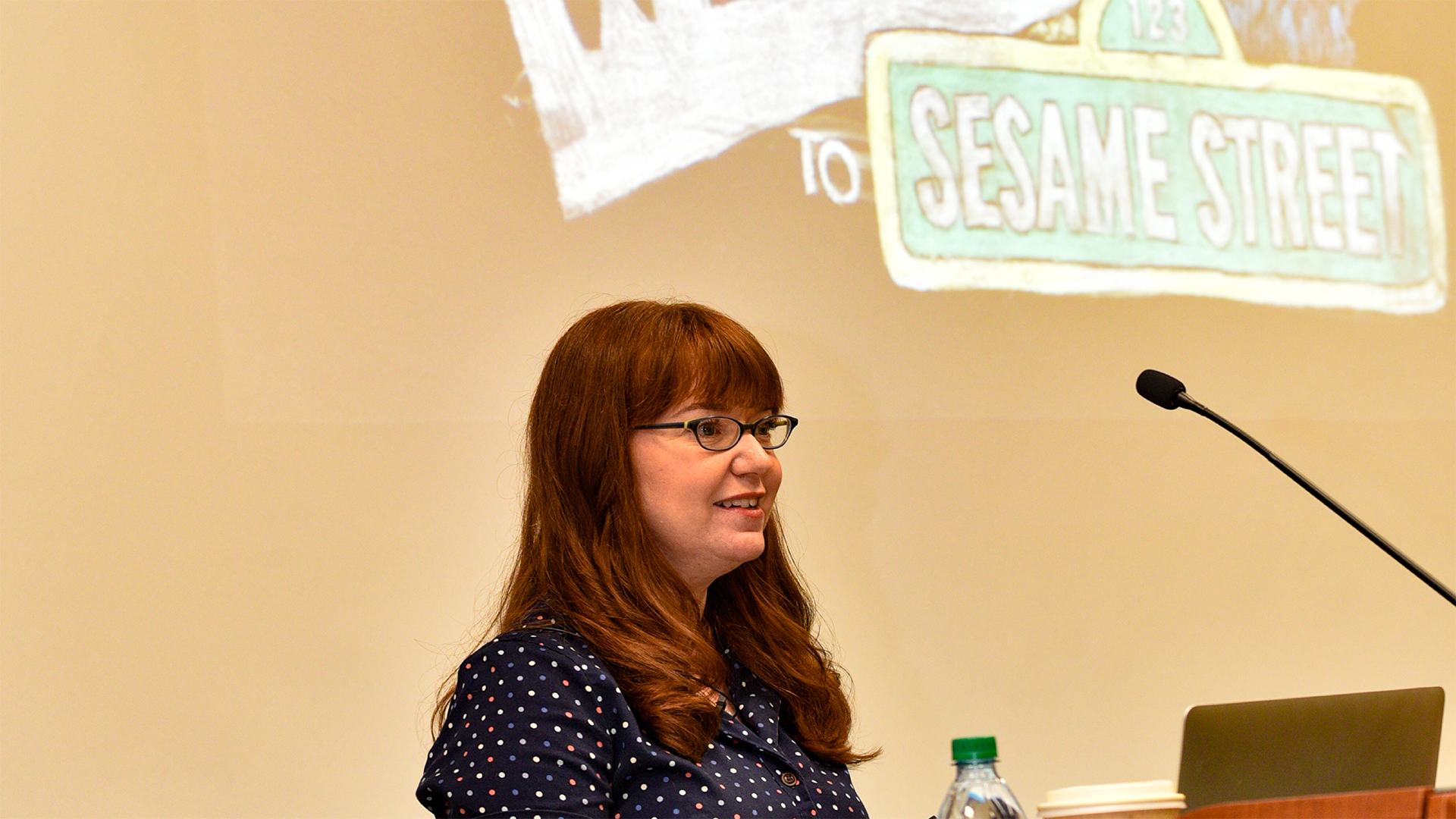In her presentation at the Third Annual Raising Special Kids Symposium: Systems and Strategies for Managing Behavior, Stacey Gordon, whose alter ego is Julia, the lovable Sesame Street-dwelling Muppet with autism, shared some of many times throughout her life she’s found herself exactly where she needed to be. She punctuated her endearing and educational presentation with images and succinct observations she’s made as a parent of a child with autism. Most, if not all, brought nods of recognition, appreciation and some chuckles from the crowd of more than 200 family members and professionals in attendance from around Arizona and beyond.
Well before Stacey took the stage, attendees began the day hearing an update on AHCCCS from Shelli Silver and insights on the healthcare integration from a panel of executives from UnitedHealthcare, Mercy Care and the Division of Developmental Disabilities.
In his keynote address, Dr. Michael Gurian shared fascinating research and insights on the difference in male and female brains and how those differences affect learning (spoiler alert: in general, male brains like movement more than female brains).
As the crowd made their way to the morning breakout sessions which were repeated in the afternoon, one participant remarked, “I’m so glad I found this. I will be sharing what I learned with my son’s team and will encourage them all to attend next year.” Session topics, all with a focus on behavior, ranged from exploring the role of implicit bias in child care centers, to strength-based strategies in movement; from trauma informed school practices to bi-polar disorder and self-advocacy; from exploring a framework for treating challenging behavior in family contexts to special education conflict resolution. In each session, presenters echoed the premise of Dr. Dan Davidson’s presentation which is how being your best can bring out the best in others when supporting people with challenging behaviors.
During the luncheon, Susan Voirol, program manager for Arizona’s Employment First Initiative and Transition at the Sonoran University Center for Educational Excellence at the University of Arizona, was presented with the Families First Award for her exemplary support for Arizona families raising children who have disabilities. About her selection, Chris Tiffany shared, “Susan’s work in systems change through collaboration and participation, her commitment to Arizona’s Employment First Initiative, and her compassion for the family experience made this year’s unanimous decision an easy one for the committee.”
Before breaking for afternoon sessions, Howard Glasser introduced the crowd to The Nurtured Heart Approach and his dedication to awakening and recognizing the greatness in all children, particularly intense and challenging children. Dr. Velia Leybas Nuño shared some of her research into the efficacy of The Nurtured Heart Approach and its promise for the future.
It was only through the generosity of our symposium sponsors that we were able to provide the highest caliber presenters with such terrific information in an environment so conducive to learning. Many thanks to First Things First, the Arizona Developmental Disabilities Planning Council, Arizona Department of Health Services-Office of Children with Special Health Care Needs, Ability360, Kile & Kupiszewski Law Firm, UnitedHealthcare Community Plan, Mercy Care, Williams Express, The Menta Group, Phelps Law, Hopebridge, DMG Children’s Rehabilitative Services, Trumpet Behavioral Health, DES/DDD Arizona Early Intervention Program, Southwest Human Development and Banner Health.
When plans begin for the next symposium, information will be announced in our weekly newsletter, The Monday Memo, and through social media. Click to subscribe and follow The Monday Memo, Facebook, Twitter, and Instagram.

